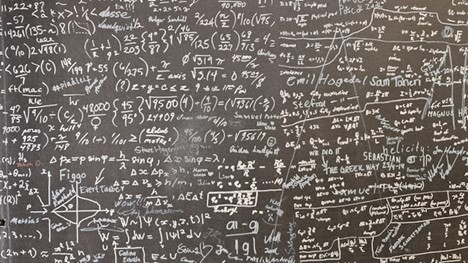Mathematics, often hailed as the language of the universe, has been shaped by the brilliant minds of countless individuals throughout history. From ancient scholars who laid the groundwork for algebra and geometry to modern pioneers who revolutionized fields like calculus and number theory, the contributions of famous mathematicians have left an indelible mark on the world. Matthew Blaisdell of Pittsburgh, PA delves into the lives and achievements of some of the most influential figures in mathematics, highlighting their groundbreaking work and enduring legacies.
Pythagoras (c. 570 – c. 495 BC)
Pythagoras, a Greek philosopher and mathematician, is best known for the Pythagorean theorem, which states that in a right-angled triangle, the square of the hypotenuse (the side opposite the right angle) is equal to the sum of the squares of the other two sides. This theorem laid the foundation for trigonometry and has applications in fields ranging from architecture to physics.
Euclid (c. 300 BC)
Euclid, often referred to as the “Father of Geometry,” authored the seminal work Elements, a comprehensive compilation of mathematical knowledge at the time. Elements introduced axiomatic reasoning and laid out fundamental principles of geometry, such as the properties of circles, angles, and geometric proofs. Euclid’s work became the standard textbook for mathematics for over two millennia.
Leonhard Euler (1707 – 1783)
Leonhard Euler, a Swiss mathematician, made profound contributions to various branches of mathematics, including calculus, number theory, and graph theory. Euler’s formula eiπ+1=0e^{i\pi} + 1 = 0eiπ+1=0, known as Euler’s identity, elegantly connects five fundamental mathematical constants: eee (the base of the natural logarithm), iii (the imaginary unit), π\piπ (pi), 1, and 0. Euler also introduced the concept of mathematical functions and notation that are still in use today.
Carl Friedrich Gauss (1777 – 1855)
Carl Friedrich Gauss, a German mathematician, made significant contributions to many areas of mathematics, including number theory, analysis, differential geometry, and geophysics. Gauss’s work on number theory led to the discovery of the prime number theorem and quadratic reciprocity. He also developed Gauss’s law for electricity and magnetism, foundational to the field of electromagnetism.
Évariste Galois (1811 – 1832)
Évariste Galois, a French mathematician, is celebrated for his contributions to group theory and algebra. Galois theory, named in his honor, revolutionized the study of equations by establishing a connection between fields and groups. His work laid the groundwork for abstract algebra and is essential in understanding the solvability of polynomial equations using radicals.
Ada Lovelace (1815 – 1852)
Ada Lovelace, an English mathematician and writer, is recognized as the world’s first computer programmer. In collaboration with Charles Babbage, she wrote an algorithm intended for Babbage’s Analytical Engine, a mechanical general-purpose computer. Lovelace’s notes on the Analytical Engine included the first algorithm designed for implementation by a machine, making her a pioneer in computer science.
Alan Turing (1912 – 1954)
Alan Turing, a British mathematician and computer scientist, is hailed as the father of theoretical computer science and artificial intelligence. Turing made profound contributions to cryptography during World War II, playing a crucial role in breaking the German Enigma code. His conceptualization of the Turing machine laid the foundation for modern computing and the field of algorithmic complexity.

Mary Jackson (1921 – 2005)
Mary Jackson, a mathematician and aerospace engineer, made significant contributions to NASA’s space programs during the early 1960s. Jackson’s pioneering work in aerodynamics and the integration of women and minorities in STEM fields inspired generations of mathematicians and engineers. Her story was immortalized in the book and film Hidden Figures.
Andrew Wiles (born 1953)
Andrew Wiles, a British mathematician, is renowned for proving Fermat’s Last Theorem, a conjecture that had baffled mathematicians for over 350 years. Wiles’s proof, completed in 1994, involved advanced concepts from algebraic geometry and number theory. His achievement solidified his place among the greatest mathematicians of the modern era.
Maryam Mirzakhani (1977 – 2017)
Maryam Mirzakhani, an Iranian mathematician, was the first woman to win the Fields Medal, the most prestigious award in mathematics. Mirzakhani’s research focused on the dynamics and geometry of Riemann surfaces and their moduli spaces. Her groundbreaking work opened new avenues in the study of complex geometry and earned her international acclaim.
Conclusion
The contributions of these famous mathematicians span centuries and continents, each leaving an indelible mark on the field of mathematics and beyond. Their discoveries and theories have not only advanced human knowledge but also shaped the way we understand and interact with the world. As we continue to build upon their legacies, the impact of their work continues to inspire and inform future generations of mathematicians and scholars worldwide.
